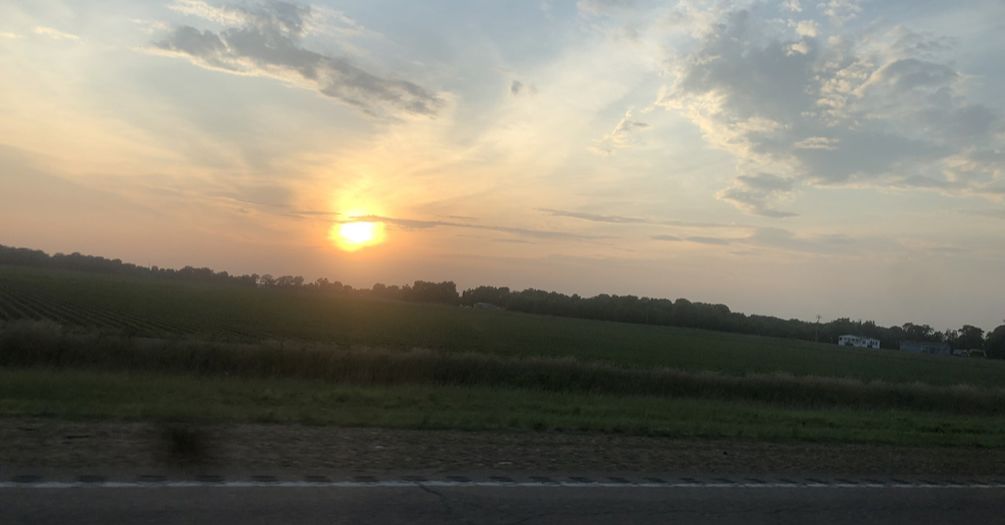Contemplations in the Kingdom of B.B. King

Izza Ahmed-Ghani
Undergraduate Senior
On Sunday, May 15th, 2022, I departed Motown city and transverse to the plains of
the melancholy delta
blues for fieldwork associated with the University of Mississippi, aka “Ole Miss.”
We, the confused
students from the University of Michigan, submissively gathered together at the gate
to embark on the
unknown territory of the American South. Most of my Michigan peers were older and
a degree ahead, the
only unifying factor being the embellishment of the maize and yellow “M '' printed
across various bodies.
Strangers on an educational mission, we were split into cars and drove towards our
new home of
Clarksdale in what felt like a windy gray Wizards of Oz welcome. As we sat later that
evening through
the dually soulful food and lived music, I remember actively reviewing my expectations:
you’ll learn a
lot, be okay with ignorance, and ignore unwelcome comments. Why? Because to me, social
media
portrayed southern hostility instead of hospitality towards immigrants, non-Christians,
and communities
of color.
The following day the University of Mississippi representatives of Population Health
and Community
First Research Center for Wellbeing and Creative Achievement (CREW), Dr. Anne Cafer
and Dr. Lynn
Woo, acquainted us with the week ahead: that we were going to report a comprehensive
evaluation of
newly piloted interventional food prescription programs among food-insecure rural
residents of Quitman
and Tallahatchie counties by conducting focus group interviews amongst stakeholders,
such as
participants of the program and staff members, as well as extract both quantitative
and qualitative data
from that. Had it not been for Dr. Cafer reminding that our incoming notions of the
south were built by
systems of privilege and power, as well as Cohoama native Katie Noah’s gentle nudge
to just be
ourselves, I do not know if I would been as open-minded and grateful for the interactions
I had ahead of
me. This information made the most significant mindset switch that positively changed
my whole outlook
for the rest of the trip. However, what – in layman's terms – was not mentioned, was
that I would learn to
assimilate into unknown communities, pivot in community building, and the need for
patience and grace
in professional rapport.
I had an academic understanding of rural communities from previous public health classes.
Still, as a
Pakistani American, I was more familiar with the settings in global spaces than local
Western spaces. My
naivety in understanding these rural populations became more evident with the initiation
of focus groups
in Tallahatchie and later with the recruitment of participants in Quitman county.
For Mississippi residents,
it was immediately recognizable that I was an outsider to their community and that
I did not understand
the dynamics of the delta. However, the more I met and spoke to them, the more I was
able to adjust my
communication style and appropriately include cultural vernacular to navigate relations
with members of
these communities. Being jovial, friendly, and an active listener proved to ease the
comfort of residents I
spoke to in focus groups, participant recruitments, staff, and strangers. With reflections
and faculty
teach-ins on racially motivated historical injustices intertwined with socioeconomic
factors, the divisions
between health status and food insecurity became more evident as the trip went on.
Members of the
community wanted a change, and, through the food prescription program, I could see
how empowered
they felt by taking control of their nutritional well-being. Amidst challenges of
transportation, financial
burdens, and lack of technology, residents of Mississippi prevail against setbacks
and move forward each
day in the unsung union of looking out for each other. With the privilege of my experience
through
PHAST, I champion my lessons onwards into my young ambitions in community development
and health
promotion. In leaving Mississippi, she encaptured a piece of me behind, and I take
a part of her as I
humbly trail on forward.
